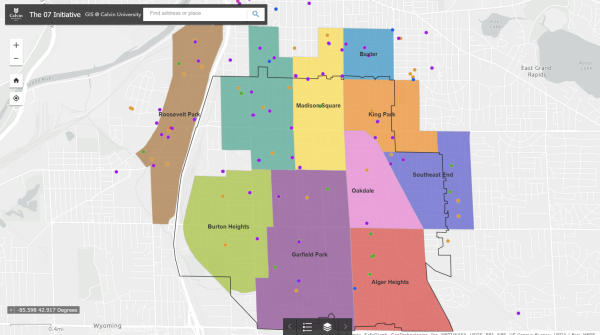Bernie Sanders and Donald Trump win Michigan primary
Tuesday marked Michigan’s turn to vote in presidential election primaries, and while some of the outcomes were expected according to pre-election polls, other outcomes surprised those invested in this current political race.
Receiving 37 percent of the votes, Donald Trump won the GOP primary, with Ted Cruz following behind with 25 percent, John Kasich with 24 percent and Marco Rubio with nine percent. Trump had the lead early on in the race, so this didn’t come as much of a surprise to the media organizations broadcasting the primary.
It was the Democratic primary that provided the shock to voters and the media.
Six hours before primary polls were to close, the polling place in Flint ran out of Democratic ballots. Michigan voting rules declare that you don’t need to be registered as a particular party to vote, but you must claim either a Democrat or Republican ballot upon voting. This means that the voter turnout was unexpectedly high among those voting Democrat.
City of Flint Clerk Inez Brown said that this is the first time this has ever happened during her 20-year tenure, an observation echoed by Flint resident Patricia Sampson, who has been voting Democrat at the Flint precinct since 1995.
Due to the shortage of Democrat ballots, those who wanted to vote Democrat had to wait for more ballots to be delivered to the precincts that had run out. While Brown is sorry for the inconvenience, the city of Flint is proud of having such an incredible voter turnout.
County leaders have predicted that it’s because of Flint’s water crisis that there was an increase in turnout, as the city is in the middle of a crisis and people want their voices heard.
Flint reaching a historical voter turnout is only the first of two surprising results of the night.
Early on, according to polls about who would lead the Democratic party in votes, predictions came about that Hillary Clinton would beat Bernie Sanders, suggesting that Sanders’ campaign was reaching its end.
However, as results began rolling in, Sanders began to take the lead, and that lead never faltered. The end of the night determined Sanders as the winner of the Democratic primary, with 50 percent of the ballots compared to Clinton’s 48 percent.
In a late-night press conference, Sanders mentioned that just a few days ago, he was down by 20-25 points in the polls, but the people of Michigan did not accept the notion that Sanders’ campaign was over.
Of the states that Sanders has won so far (which, other than Michigan, are New Hampshire, Vermont, Kansas, Oklahoma, Nebraska, Colorado and Maine), Michigan is the largest and most racially diverse.
Although Clinton won in the three most populated counties, she only won 10 of Michigan’s 83 counties, leaving Sanders with a wide lead in the remaining Michigan counties. This is particularly surprising since Clinton was predicted with a 99% chance of winning according to the pre-election polls and several news sources, such as FiveThirtyEight.








